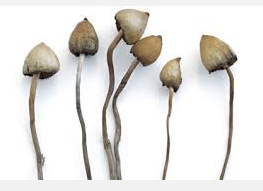-
Understanding Accountability and BPD
Often, I have had nons say to me that they want their borderlines to be accountable and responsible for their actions. I recently got a 1 star review of “When Hope is Not Enough” that indicated that the reviewer felt that my approach to BPD was a “recipe for walking on eggshells”. It’s clear to me that the reviewer didn’t really understand the content of my book. The reviewer went on to say that: This book doesn’t hold a BPD anywhere close to being responsible for her actions by granting the notion of “emotional dysregulation” a power of grand excuse. Clearly, the reviewer didn’t understand the idea of emotional dysregulation…
-
Lindsay Lohan and possible BPD (more detail this time)
Well, it’s been some time since I have written anything about celebrities with possible borderline personality disorder. Personally, I wish some celeb would just come out and admit that they have the disorder and help others by showing that there’s effective evidence-based treatments for BPD. I guess the stigma is too great and they feel that it would hurt their careers. Of course, for some, their behavior is what is hurting their careers. Today, I am turning again to Lindsay Lohan (click here to see all posts about LiLo). Lately I have been receiving a ton of alerts with news stories that contain LiLo’s name and reference BPD. These are…
-
An exercise in being Non-judgmental
I have been working on a second edition of When Hope is Not Enough, in which I am adding some exercises as well as some new tools and perspectives to make the book even more effective. One of the exercises is in learning how to be mindful of one’s judgmental attitudes. I often say that people with BPD are almost allergic to judgment. I find that this can be tracked back to shame which in turn can be tracked back to an unstable sense of self. Here is the first draft of the exercise: One way to become non-judgmental is to become aware of your (often) unconscious and conditioned judgments.…
-
On My Side
I often hear people with BPD/ERD say that they feel that their loved ones are “not on my side” or that the loved ones are “supposed to be on my side.” This phrase stuck out at me when I read the story about the suicide of Megan Meier (the “MySpace suicide” case), because, although I have no insight into Megan’s mental health, clearly when she was insulted and rejected on MySpace, and she was emotionally dysregulated. She came to her mother, and after her mother admonished her for the use of foul language on MySpace, Megan cried and said, “You’re my mom. You’re supposed to be on my side!” (This…
-
When Toxicity and Misinformation Know No Bounds
Boy, it’s amazing how much bad information travels around the Internet at the speed of light. People are so misinformed about BPD it’s scary. Yesterday, I stumbled across the “Yahoo Answers” site for a question in which a woman asked if she could “help her partner with Borderline Personality Disorder?” There were 10 “answers” to this question. Here are some excerpts from each, which the misinformation pointed out: “So, you sacrificed your children to a crazy person?? What is wrong with you?? Is there a clinical term for “glutton for punishment”?” Dissolve this toxic relationship immediately! Judgmental. Non-BPs don’t need another person telling them to leave their partner; there are…
-
NY Times Article that Mentions BPD
NY Times article mentioning BPD. I’d love to comment, but will have to do so later…. October 21, 2008 Mind When All Else Fails, Blaming the Patient Often Comes Next By RICHARD A. FRIEDMAN, M.D Doctors and psychotherapists generally don’t like it when their patients don’t get better. But the fact is that lots of patients elude our clinical skill and therapeutic cleverness. That’s often when the trouble starts. I met one such patient not long ago, a man in his early 30s, who had suffered from depression since his teenage years. In six years of psychotherapy, he had been given nearly every antidepressant under the sun, but his mood…


